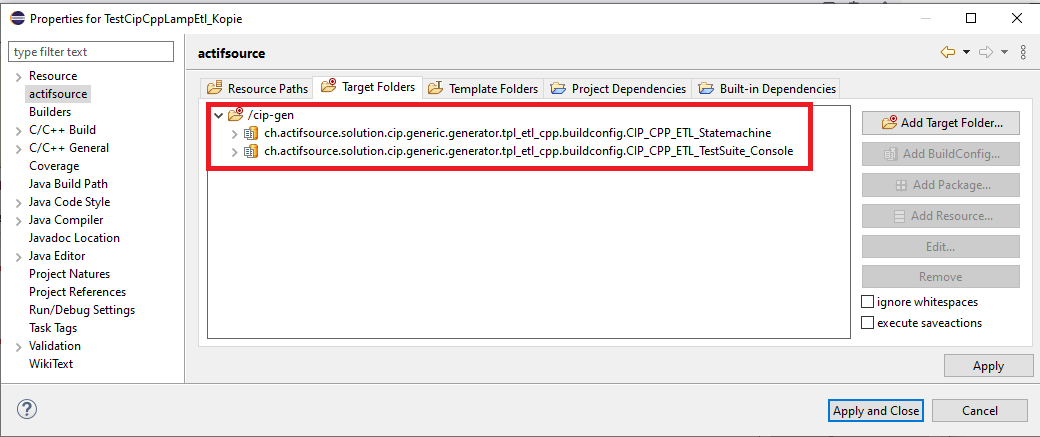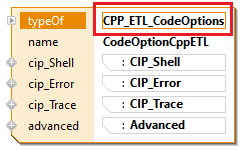It should be possible to generate the CIP statemachine model against the ETL-CPP (https://www.etlcpp.com/) library.
This allows the simple definition of the CIP model to be combined with the power of the ETL library.
There is a simple example on Github. To be able to compile the project, the ETL library (MIT License https://github.com/ETLCPP/etl?tab=MIT-1-ov-file) must be downloaded from the github repository (https://github.com/ETLCPP/etl) and integrated into the project.
Currently, all features offered by the CIP tool are supported with the exception of CIP arrays.
The ETL templates are in the beta stage and are validated by external companies that use them.
To use the ETL-CIP generator, the following points must be made:
1. BuildConfig
Use the build config 'CIP_CPP_ETL_Statemachine' to generate the C++ ETL code.

2. Cip Codeoption
Create a new 'CPP_ETL_CodeOptions' and link it to the 'ImplementationUnit'.

On github there is an example:
This allows the simple definition of the CIP model to be combined with the power of the ETL library.
There is a simple example on Github. To be able to compile the project, the ETL library (MIT License https://github.com/ETLCPP/etl?tab=MIT-1-ov-file) must be downloaded from the github repository (https://github.com/ETLCPP/etl) and integrated into the project.
Currently, all features offered by the CIP tool are supported with the exception of CIP arrays.
The ETL templates are in the beta stage and are validated by external companies that use them.
To use the ETL-CIP generator, the following points must be made:
1. BuildConfig
Use the build config 'CIP_CPP_ETL_Statemachine' to generate the C++ ETL code.

2. Cip Codeoption
Create a new 'CPP_ETL_CodeOptions' and link it to the 'ImplementationUnit'.

On github there is an example:
- See https://github.com/actifsource/ch.actifsource.example.cip/tree/master/ch.actifsource.example.cip.etl

